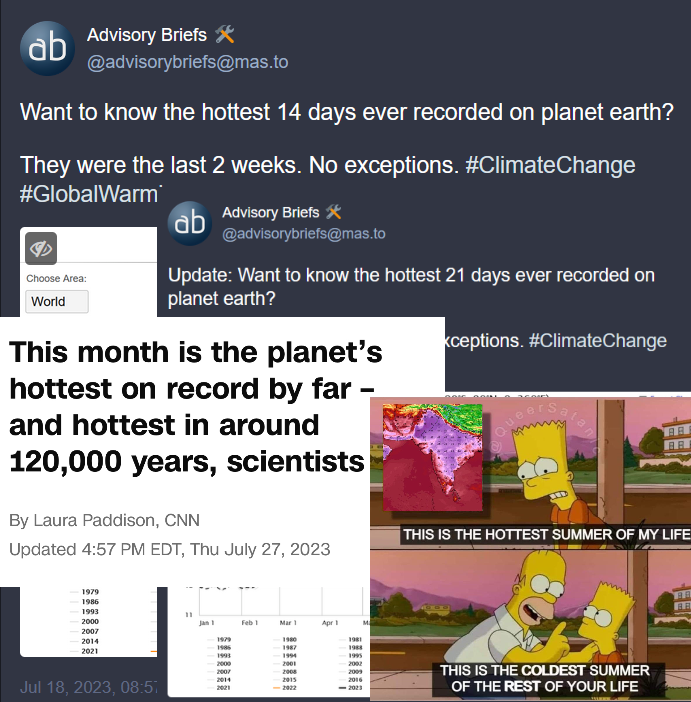this post was submitted on 30 Jul 2023
222 points (98.3% liked)
196
16790 readers
2833 users here now
Be sure to follow the rule before you head out.
Rule: You must post before you leave.
founded 2 years ago
MODERATORS
you are viewing a single comment's thread
view the rest of the comments
view the rest of the comments

That 120000 figure is false. There's no way we could know the Earth's average temperature 120000 years ago
Historic temperatures are based on the fossil, geologic, and hydrologic record, mostly
https://www.smithsonianmag.com/blogs/national-museum-of-natural-history/2018/03/23/heres-how-scientists-reconstruct-earths-past-climates/
But if you claim that this is the hottest month since then, when the average temperature varies by less than a degree a year, you're implying that you know the maximum yearly average temperature from 120000 years ago to within a degree. The article you linked doesn't mention how precise the estimations are, but I can't imagine they're that precise
Is it really hotter now than any time in 100,000 years?:
The model that was used to make the 120,000 statement accounts for changes in temperature variability over time. This is a weird thing to complain about unless you are criticizing a specific part of the model that was used for this analysis. A similar thing goes for the comment about precision, not only do you not know if that's the case but also it's already been accounted for as part of the model (and really is accounted for in the majority of statistical methods by default).
This is like when you see climate change deniers claim "but the climate already warms and cools in cycles so we should expect periods of natural warming" as if that's not already accounted for by any modern model of climate change. Which it is.
I did a little reading, and it seems like mean temperatures getting hotter tends to lead to the the standard deviation either remaining the same or decreasing, meaning with perhaps some other info you should be able to make a reasonable estimate of the standard deviation or put an upper bound on it. But I'm not a climatologist, I don't know all of the details on how this particular analysis was done and don't know how this was necessarily factored into that, though I do know that it accounted for changes in variability. And frankly, it could be reasonably assumed that that was the case, because overlooking something like changes in variability would be a pretty silly error to make as a climatologist.
If the only concern was science journalism mis-reporting the statements of scientists, then yeah that happens surprisingly often and is a reasonable concern, but once you've seen experts saying this as well rather than just hearing it second-hand from the journalists the concern requires much more substantiation.